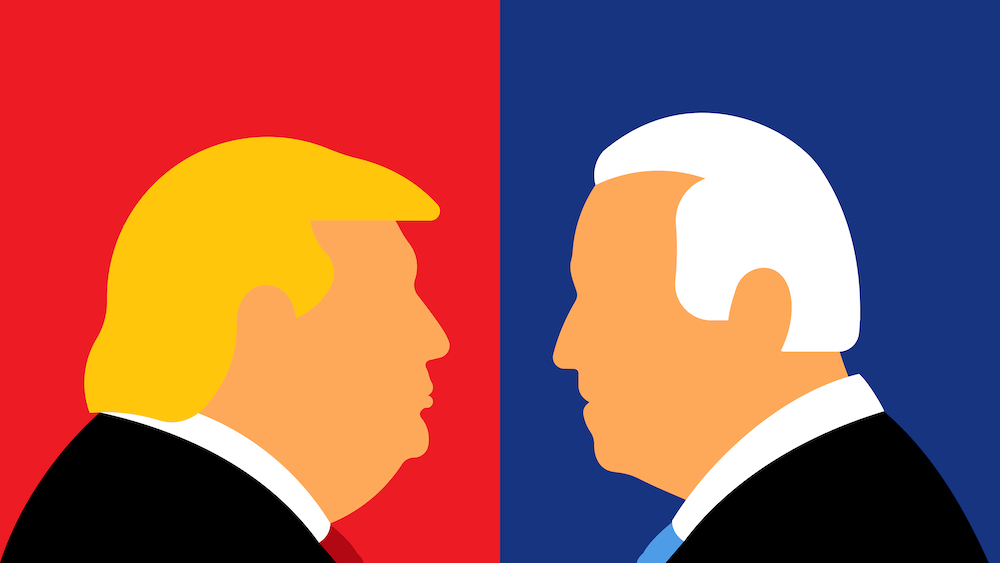With inflation high and the Federal Reserve raising interest rates, the majority of economists and market pundits came into this year calling for a severe recession.
It hasn’t happened.
Employers are hiring aggressively. Consumers are spending freely. Inflation is declining. Corporate profits are rising. Economic growth is positive. The Nasdaq is in a new bull market. And the S&P 500 isn’t far behind.
I’ve underscored these positives – and the surprising resilience of the U.S. economy – all year.
Yet I recently received a note from an unhappy reader.
“Why are you such a big Biden supporter?” he asked.
I said almost nothing about Joe Biden in those columns. Yet we live in a hyper-political world.
The next election is less than 17 months away. President Biden is running for reelection. And he makes a habit of pointing out many of the same economic pluses that I have.
That’s hardly surprising.
Politicians on both sides of the aisle try to take credit for everything that goes right on their watch.
Everything that goes wrong, on the other hand, is due to either circumstances beyond their control or – more usually – the other party.
In reality, of course, no single party – and certainly no one individual – is responsible for the $24 trillion U.S. economy.
GDP growth is dependent on inflation, interest rates, geopolitics, commodity prices, currency fluctuations, scientific innovation, business developments, labor force participation, consumer confidence and a host of other factors.
Yes, the folks in power control taxes, regulations, new legislation and – most importantly – federal spending.
Those policies can fuel the economy or throttle it back.
For instance, consumers today are splurging on travel, concerts and dining out.
This is partly due to the trillions of dollars in financial assistance handed out during the pandemic. (Much of it is still in people’s pockets.)
However, massive deficit spending – along with zero interest rates and the pandemic shutdown – is what was primarily responsible for the highest inflation in more than 40 years.
And if he weren’t thwarted by Democratic Senators Kyrsten Sinema and Joe Manchin, Biden would have happily signed trillions more in spending into law, making inflation even worse.
So, no, I don’t credit Joe Biden with the surprising resilience of the U.S. economy.
More to the point, I don’t advise investors to run their portfolios based on their political convictions.
The S&P 500 has done well under both Democratic and Republican administrations.
During the Obama years, for instance, I had many conservative friends who shunned stocks because of their opposition to Obama’s policies on taxes, spending, regulations, healthcare and debt.
I opposed many of these policies myself. But it didn’t affect my view of the market.
Good thing. During Obama’s two terms, the S&P 500 Index returned 235%. (And our Oxford Club portfolios did far better.)
In 2016, liberal commentators were virtually unanimous about the economic disaster that lay ahead if Donald Trump were elected.
In The New York Times, MIT economics professor Simon Johnson contended that “Trump would likely cause the stock market to crash and plunge the world into recession.”
Obama’s former auto czar Steve Rattner said, “[If] Trump wins you will see a market crash of historic proportions… [The markets] are terrified of him.”
Not to be outdone, the day after the election, New York Times columnist Paul Krugman wrote, “It really does now look like President Donald J. Trump, and markets are plunging. When might we expect them to recover?… A first-pass answer is never… So we are very probably looking at a global recession, with no end in sight.”
You gotta love that – a Nobel Prize-winning economist who foresaw a downturn “with no end in sight” and markets that would recover “never.”
(Krugman gets my vote as the nation’s most obvious and least credible propagandist.)
I’m not faulting these individuals for getting the economy and financial markets completely wrong.
(Although, let’s face it… they did.)
I’m faulting them for letting their political views override their good sense.
Again, stocks have delivered exceptional returns under both Republican and Democratic administrations.
The S&P 500 returned 7% annually under Carter, 10% annually under Reagan, 15% annually under Clinton, 13% annually under Obama and 14% annually under Trump.
The lesson here? Commerce trumps politics.
But if it’s not the party in power that is responsible for the amazing strength of the U.S. economy and stock market – what is?
The answer is our unique brand of American capitalism. It is far superior to other economic systems.
In my next column, I’ll explain why.
